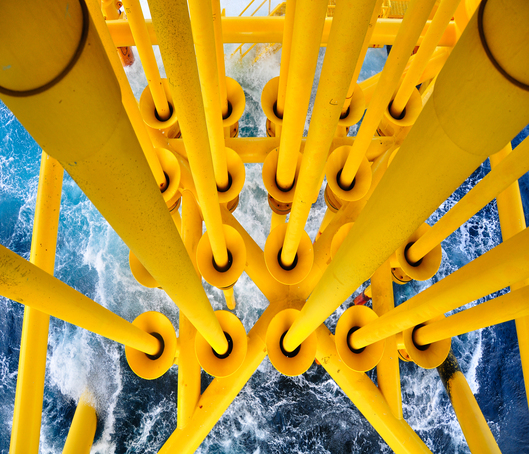 March 2023
March 2023The Importance Of Pipeline Coating for Corrosion Prevention in Oil and Gas Industry
The oil and gas industry is a critical component of the global economy, and the transportation of these products is essential for their distribution. Pipelines are the primary means of transporting these products over long distances, and the protection of these pipelines is essential to ensure their continued operation. One of the primary challenges faced by pipeline operators is the prevention of corrosion, which can cause significant damage to the pipeline and lead to leaks or spills.
Corrosion is a naturally occurring process that occurs when metal is exposed to water, air, or other corrosive substances. This can lead to rust, pitting, and other forms of degradation that can weaken the pipeline and increase the risk of leaks or spills. To address this issue, pipeline operators often use coatings to protect the metal surface from corrosion.
One of the most important factors in choosing the right Pipeline Coating for Corrosion Prevention is its ability to withstand the specific environmental conditions present in the area where the pipeline is located. For example, pipelines located in areas with high humidity or saltwater exposure will require a more robust coating that can withstand these harsh conditions. The same is true for pipelines located in areas with extreme temperatures or exposure to sunlight. The selection of the right coating can significantly impact the overall lifespan of the pipeline and reduce the risk of corrosion.
Read Also : Different methods of Corrosion Prevention
Corrosion prevention in the oil and gas industry:
Oil field corrosion challenges are not static phenomena. Fluid characteristics change over time, resulting in systems becoming less responsive to established corrosion prevention methods. Followings are the methods advised for corrosion prevention in Oil & Gas sector:
- Selection of appropriate materials
- Use of inhibitors
- Use of protective coatings
- Adequate corrosion monitoring and inspection
- Cathodic protection technique
Selection of appropriate materials:
When it is observed that the existing materials of construction are prone to corrosive attack, it is normally decided to change the materials of construction and select alternate materials to suit the specific need. Stainless steels cover a wide range of alloys, each with a particular combination of corrosion resistance and mechanical properties. Oil and gas equipment last longer when both inhibitors and protective coatings are used together.
Use of inhibitors:
Inhibitors are chemicals that are used to protect the surface of metals used in oil and gas industries to prevent corrosion. A corrosion inhibitor may act in several ways: It may restrict the rate of the anodic process or the cathodic process by simply blocking active sites on the metal surface.A further mode of action of some inhibitors is that the inhibiting compound contributes to the formation of a thin layer on the surface which stifles the corrosion process.
VCI is an environmentally safe and cost-effective option for corrosion protection. VCIs form a physical bond on the metal surface and create a barrier layer to protect against aggressive ions. The barrier re-heals and self-replenishes and can be combined with other protective coatings. It can be used in pipelines, oil and gas wells, refinery units, and fuels. In addition, these proprietary Daubert VCI based anti-corrosion products are designed to work in presence of moisture.
Use of protective coatings:
A protective layer or barrier on the material to avoid the direct contact with the process media will enhance the material and equipment life. The barrier layer can be paint, a coating or a lining, or a metallic lining or metallic sheets. There are also non-metallic linings like fibre glass, glass flake, epoxy, and rubber which are normally carried out on the equipment like separators, knock-out drums, and storage tanks. Coatings based on Daubert® CCI (Contact Corrosion Inhibition) & SACI® (Severe Atmospheric Corrosion Inhibitors) technologies have found to be very useful by several important players in this field.
Adequate corrosion monitoring and inspection:
Corrosion monitoring is the practice of measuring the corrosivity of process stream conditions by the use of probes (mechanical, electrical, or electrochemical devices) which are inserted into the process stream and continuously exposed to the process stream condition. Corrosion monitoring techniques alone provide direct and online measurement of metal loss/corrosion rate in oil and process systems. However, the best way to check corrosion is by visual inspection and checking up the material degradation periodically.
Read Also : Most Common Reasons Why Metal Parts Get Rust
Zavenir Daubert Nox-Rust® Waxes and Coatings and its application
Zavenir Daubert Nox-Rust® is a line of rust preventive waxes and coatings that offer advanced protection against severe atmospheric corrosion. The SACI® (Severe Atmospheric Corrosion Inhibitor) technology used in these products is specifically designed to protect against the harsh conditions that lead to rust and corrosion. This technology creates a protective barrier that seals in the underlying metal and prevents moisture, salt, and other corrosive elements from penetrating. These rust preventive waxes and coatings are ideal for use in a variety of industries, including automotive, aerospace, marine,construction, and oil & gas. With their long-lasting protection and easy application, Zavenir Daubert Nox-Rust® products are a reliable solution for those in need of rust protection.
By Mudit Mathur
(Senior Manager, Product Management & Marketing)

